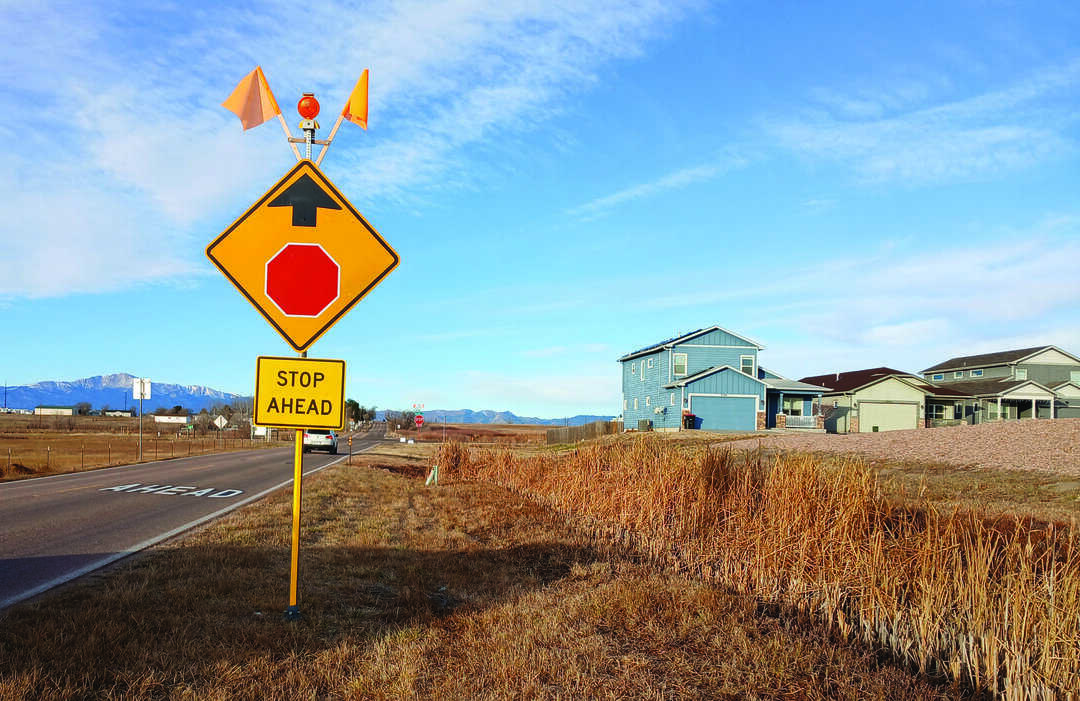Longtime local journalist Bill Radford and his wife, Margaret, live on 5 acres in the Falcon area with ducks, chickens, rabbits, dogs, cats, two noisy parrots, goats and two horses. Contact Bill at billradford3@gmail.com.
Guinea fowl or no guinea fowl, that is the question.Though it is the dead of winter, my wife is looking ahead to summer ñ- and the annual grasshopper plague. The pests seem to have been particularly bad the past two summers, shredding pretty much everything in our garden.Our chickens will eat grasshoppers but aren’t very good hunters. So my wife suggested we look into getting guinea fowl, which are known for their bug-hunting prowess.Guineas, said Nicole Gennetta, “eradicate nearly all pests from grasshoppers to ticks and are ideal for permaculture and organic pest control.” Gennetta and her husband run a 2-acre hobby farm in Pueblo West and sell guinea fowl through their Heritage Acres Market LLC; they sell 400 to 600 guinea fowl chicks, known as keets, per year, by pre-order ñ- “predominately to farmers, ranchers and marijuana growers,” Gennetta said in an email. (Gennetta, by the way, is no stranger to Falcon, where she attended school, from elementary through high school.)Guinea fowl’s talent as “pest-eating machinesî tops “5 Fantastic Reasons You Should Own Guinea Fowl,” posted by Gennetta on her website (heritageacresmarket.com.) Other reasons include low maintenance, their personality (“high-strung buffoons” that are fun to watch), their “exquisite meat” if you care to dine on them, and their service as watchdogs. (Or is that watchbirds?)”They recognize unusual vehicles, someone walking around the property at night, and predators (which make them a great addition to flocks of chickens),” Gennetta said in her email. “The flip side to that is that they can be quite noisy. Although they do acclimate to their surroundings, they are easily frightened and can make a racket when alarmed.” Sometimes, that alarm is justified, as with the presence of a coyote or a hawk; other times, she said, it might be spurred by something as harmless as a tumbleweed.That indiscriminate watchdog ability is viewed more as a negative by “5 Reasons Not to Own Guinea Fowl,” posted at thefreerangelife.com. “Guineas will alert you to strange dogs, people and cars coming on to your property,” according to the article. “But they will also alert you to the fact that a door just slammed, the wind blew, or a car drove by a mile down the road.”Guineas, which can fly, take the idea of free-range “to the extreme,” the article states. “They will cross roads, bother your neighbors, terrorize the horses down the street ñ- all while screaming and squawking. They might come home at night, they might not.”Proper coop training ó and providing shelter with a constant source of food and water ó can teach the guineas where home is, though, Gennetta said. You’ll need to start the keets in a brooder box; Gennetta has instructions on her website.Guinea fowl, Gennetta said, “are a very social bird,” so she suggests starting with a group of at least six. For our 5-acre lot, she recommends 10 to 15 “for maximum pest control.”The fact that they’re social doesn’t mean they’ll necessarily get along with other birds. “They may bully chickens, and they donít always like newcomers, even of the same species,” Countrysidenetwork.com cautions in addressing “The Realities of Guinea Fowl Care.” “If you have lots of land,” it states, “chickens and guinea fowl are more likely to live in harmony because itís easier for each group to keep themselves to themselves, but if theyíre competing for space, the situation could become fraught with problems.”If you plan to keep guinea fowl and chickens together, it’s important to combine the keets with the chickens as soon as you can ó “absolutely no later than 10 weeks old,” Gennetta said. “The only time I’ve ever had any issues is the first time I ever had guineas, I purchased two adults. Those two adults were never around chickens. When I incorporated them, the guineas were less than friendly.”†So, with all these pros and cons, we’re back to the question: guinea fowl or no guinea fowl? We need to decide soon if we’re going to have birds old enough to roam once the grasshoppers are out in force this summer. If you are familiar with guinea fowl and have advice to share, email billradford3@gmail.com.





